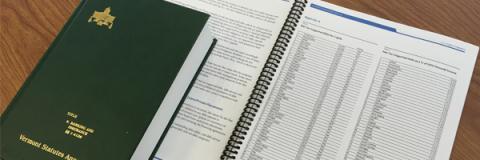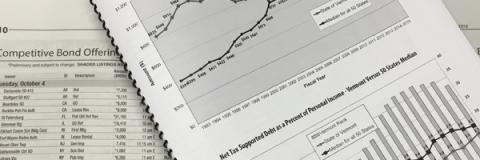Consumer Information
What Is an Asset Locator or Heir Finder?
Asset Locators and Heir Finders help reunite owners and heirs with abandoned assets for a fee. The State of Vermont limits this fee to 10 percent of the total property value. Focused typically on high-dollar-value items only, they contact owners or heirs then offer to assist in the return of the abandoned property based upon a signed agreement or contract.
- Beware of anyone requesting payment before returning your property.
- The State of Vermont and consumer protection agencies encourage individuals to consult the Better Business Bureau or State Attorney General Consumer Assistance Program before signing any agreement.
- No claim form is sent to an asset locator without prior written permission from the owner or owner's legal representative.
- The Unclaimed Property Division never sends your check to any asset locator or heir finder; all property is sent directly to you. You must pay the heir finder or asset locator according to the contract you signed.
Remember: You can Always Search and Obtain Funds Yourself.
You can:
- Search the State Treasurer Unclaimed Property Database
- Review our external links section for general searches and lost insurance policies
- Contact banks and other financial institutions where you had accounts
- Obtain FDIC support in cases of a failed bank with which you did business
- Research federal agencies and other entities with searchable databases
Agent Information
The following requirements apply to all asset locators and heir finders. Before conducting business in Vermont, you must:
- Obtain and maintain registered business status
- Post a performance bond of at least $10,000 with the state
- Provide a copy of (when filing a claim on behalf of an owner) any agreement or contract signed by the owner along with a notarized "Notice to Claimant" form describing owner rights and obligations
Legal Notices
An agreement between an owner and an asset locator, the primary purpose of which is to locate, deliver, recover or assist in the recovery of property that is presumed abandoned, shall be:
- void and unenforceable, if entered into during the period commencing on the date the property was presumed abandoned and extending to a time that is 24 months after the date the property is paid or delivered to the treasurer. This does not apply to any agreement between an owner and a Vermont-licensed attorney to file a claim as to identified property or contest the treasurer's denial of a claim.
- enforceable only if the agreement is in writing in a form acceptable to the Treasurer; it must clearly define the nature of the property and the services to be rendered and be signed by the apparent owner. It also must state the value of the property before and after the fee is deducted.
- unenforceable, when it provides for compensation that exceeds 10 percent of the value of the unclaimed property; this does not preclude an owner from asserting that an agreement is invalid on grounds other than excessive compensation.
When an agreement applies to mineral proceeds, and the agreement contains a provision to pay compensation that includes a portion of the underlying minerals or any mineral proceeds not then presumed abandoned, the provision is void and unenforceable.
Claim payments are sent directly to an owner and not to the asset locator. An owner may not assign his or her rights - or property interests - to an asset locator.





